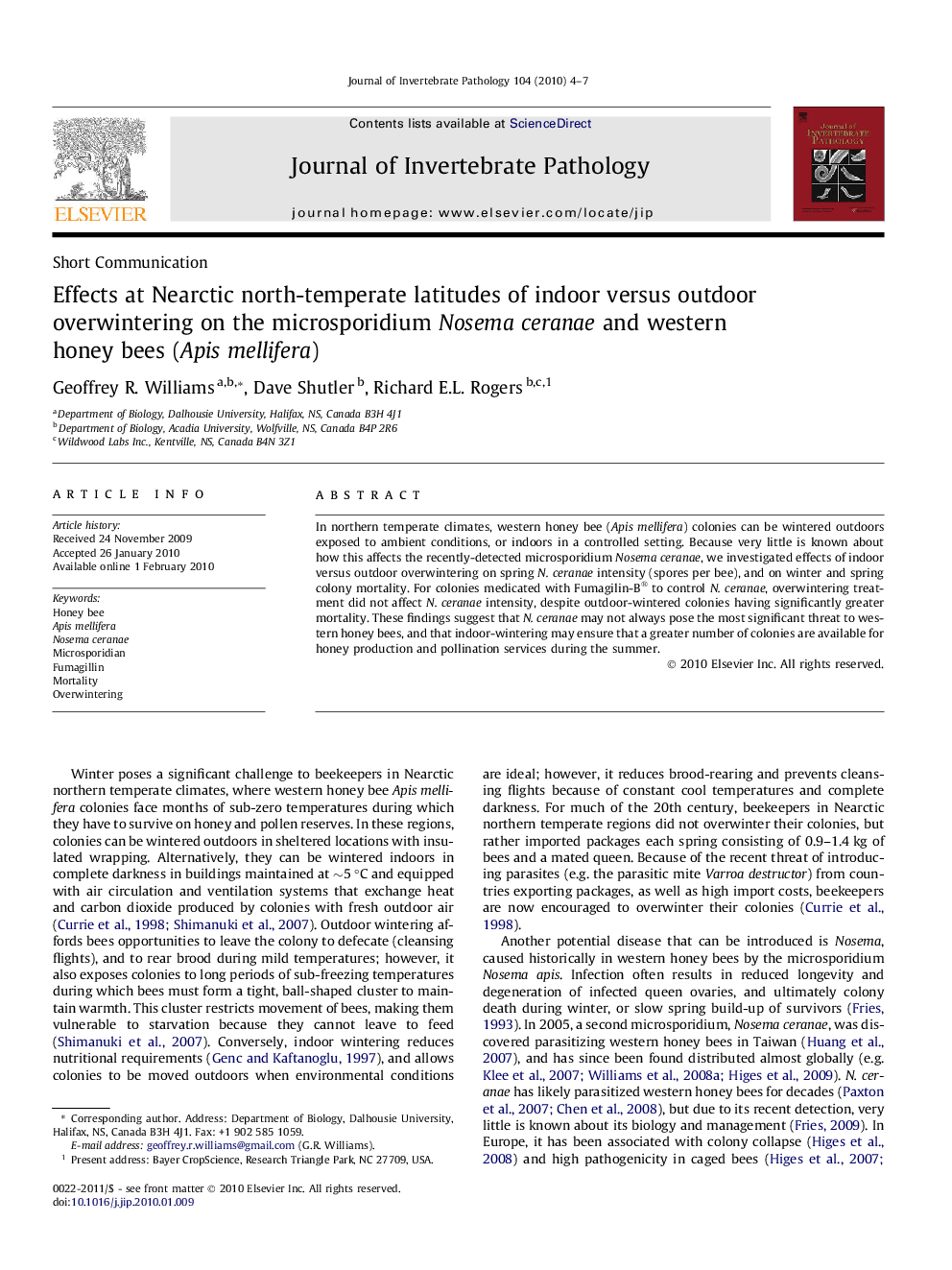| Article ID | Journal | Published Year | Pages | File Type |
|---|---|---|---|---|
| 4558284 | Journal of Invertebrate Pathology | 2010 | 4 Pages |
In northern temperate climates, western honey bee (Apis mellifera) colonies can be wintered outdoors exposed to ambient conditions, or indoors in a controlled setting. Because very little is known about how this affects the recently-detected microsporidium Nosema ceranae, we investigated effects of indoor versus outdoor overwintering on spring N. ceranae intensity (spores per bee), and on winter and spring colony mortality. For colonies medicated with Fumagilin-B® to control N. ceranae, overwintering treatment did not affect N. ceranae intensity, despite outdoor-wintered colonies having significantly greater mortality. These findings suggest that N. ceranae may not always pose the most significant threat to western honey bees, and that indoor-wintering may ensure that a greater number of colonies are available for honey production and pollination services during the summer.
